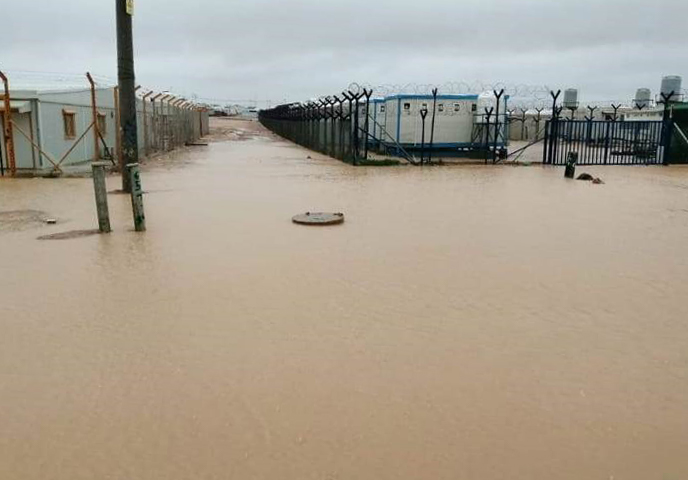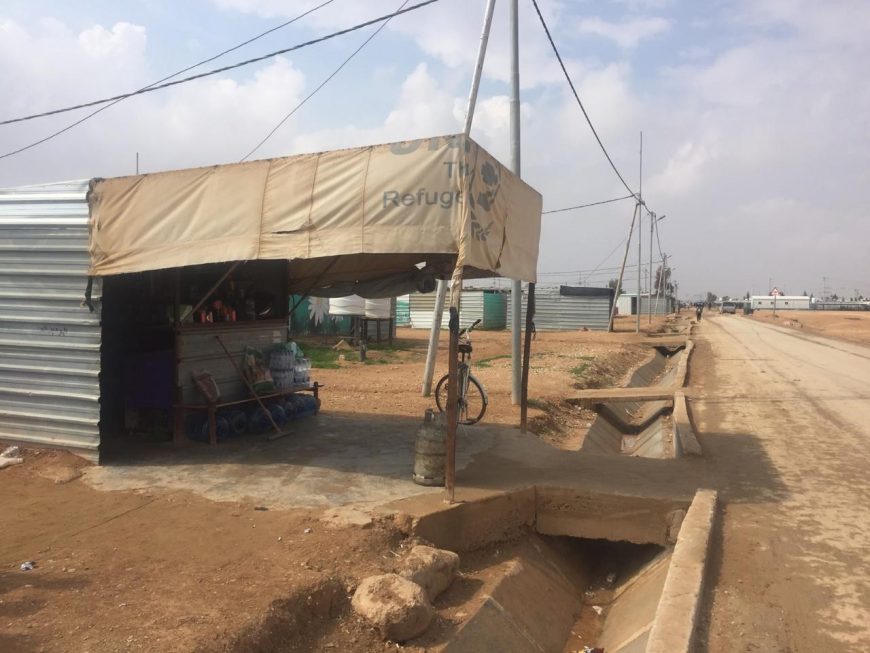Wherever you find yourself in Zaatari camp, each building carries the telltale yellow blemish created by floodwaters. Jordan’s rain season (October - March) sees road blockages and flooding in homes, schools and hospitals. The water also stops essential interventions in the camps, blocking access for water trucks. Flooding thus poses a major challenge to those trying to maintain the sanitation, hygiene and living standards of refugees living in Za’atari camp.
To reduce the disruption caused by the flooding, ACTED created a drainage system to channel water away from streets and houses during the winter.
The Rainy Season in Jordan

Zaatari refugee camp, established in 2012, caters for Syrian refugees fleeing the violence of the Syrian war. Given the emergency context of its creation, the natural drainage patterns of the area were overlooked, leading to the annual flooding of homes, schools and shops within the camp. Swampy and unpassable roads make daily life activities, including food shopping and family visits difficult, sometimes impossible. Critically, the flooding also halted essential service provision, such as water trucking and medical interventions with a potentially life-threatening impact.
Rita, a grandmother and shop owner living in District 5 said: “Before the construction, when water was flooding my home, we had no choice but stay indoors and close the shop. We worried because of the reduction in our income, not to mention the loneliness which comes from not being able to visit our grandchildren living in other areas of the camp.”
The Solution: A Water Drainage System
Over the course of five months, ACTED built a water drainage system parallel to the main road surrounding District 5 to ensure water can flow quickly out of the camp. ACTED hired almost 600 Syrian refugees as short-term workers, some working on the construction, while others were in charge of community mobilisation. The community mobilisation team informed camp residents about the risks of the construction and the benefits of the network.
Ali, a shop owner living in District 5, said: “Customers and suppliers can now come to my shop any time because the road is accessible thanks to the network. I do not worry about the rainy season anymore because I know that my income will remain stable.”

Access to basic services no longer varies with the season...
The situation continues to improve thanks to the combined efforts of ACTED and the camp residents to maintain the quality of the drainage system: Following the installation of the drainage system, camp residents took the initiative to extend the trench network into their neighbourhoods to ensure water invading streets and houses is channeled towards the main drainage system. Moreover, ACTED hired camp residents as short-term workers to maintain the network on an ongoing basis.